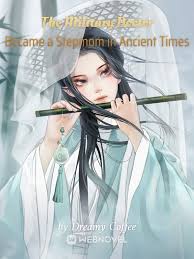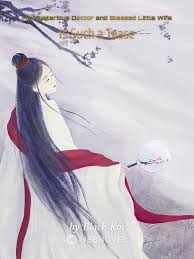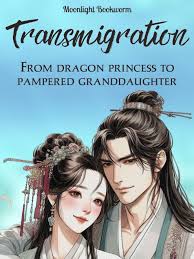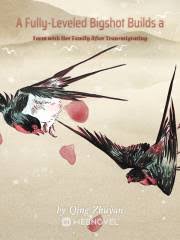The Story in 3 Sentences
Li Yu, a modern special forces police officer, dies in the line of duty and awakens reborn in the Great Yong Dynasty inside the body of a teenage girl who was abused to death by her fiancé’s family.
She returns to her rural hometown with her younger brother Li Qing, using her tactical mind and survival skills to reclaim stolen inheritance, dismantle the Zhang family’s schemes, and build a self-sufficient life rooted in farming and community resilience.
As prosperity blooms, a devastating locust plague erupts, escalating into regional war—forcing Li Yu to shift from cultivator to protector, strategist, and leader on a far grander scale.
Why It Stands Out
1. Tactical Farming Meets Tactical Revenge
Unlike typical rebirth tales fixated on palace intrigue or harem politics, this novel merges military precision with agrarian realism. Li Yu doesn’t just grow crops—she engineers crop rotation systems, designs irrigation, stockpiles food, and trains villagers in defense drills. Her farm becomes a fortress of sustainability, and every harvest is a quiet act of defiance against those who tried to erase her.
2. Romance Without Subservience
The relationship between Li Yu and Zhou Jia avoids the tired trope of the male lead “saving” the heroine. Zhou Jia admires her competence, supports her autonomy, and offers partnership—not protection. Their bond grows through mutual respect during crises, not forced proximity or emotional manipulation, making their eventual marriage feel earned and balanced.
3. Pacing That Respects the Reader’s Time
Many web novels stretch a week’s events over 200 chapters, but this story moves with purpose. Conflicts arise, escalate, and resolve within reasonable arcs. The locust plague isn’t teased for dozens of chapters—it arrives, devastates, and triggers immediate consequences. This narrative efficiency keeps tension high without inducing fatigue.
Characters That Leave a Mark
There’s Zhou Jia – the quiet, observant man from the neighboring village whom Li Yu rescues during a mountain hunt, and who later dedicates himself to standing beside her not as a shield but as an equal partner in rebuilding their world.
You’ll meet Zhang Guixiang, who embodies the cruelty of entitlement; as the matriarch of the fiancé’s family, she orchestrated the original Li Yu’s death to seize the family’s wealth and never expected the girl to return—let alone with the mind of a soldier.
And Li Qing? He’s the younger brother whose grief hardens into resolve; witnessing his sister’s transformation, he channels his trauma into discipline, studying, training, and eventually becoming a pillar of their new household rather than a burden to be protected.
The Flaws Fans Debate
The machine translation quality is inconsistent, with frequent pronoun errors (using “he” for the female lead) and awkward phrasing that disrupts immersion, as noted by multiple reviewers who had to reread sentences to grasp meaning.
Some readers criticize the editing as lazy, pointing to repetitive sentence structures and unnatural dialogue that reads like “a baby book,” diminishing the emotional weight of key scenes.
A segment of the audience feels the resolution of the Second Prince’s storyline is overly simplistic, lacking the political complexity one might expect from a wartime arc in a historical setting.
Must-Experience Arcs
Ch. 1–50: Rebirth and Reclamation – Li Yu awakens in her new body, secures her brother’s safety, and systematically reclaims her father’s stolen assets from the Zhang family through legal maneuvering and psychological pressure, establishing her farmstead as a base of operations.
Ch. 200–280: The Mountain Rescue and Zhou Jia’s Vow – While hunting, Li Yu saves Zhou Jia from bandits; their quiet courtship begins not with grand declarations but shared labor, mutual aid during village disputes, and his growing admiration for her unshakable integrity.
Ch. 500–580: Locust Plague and the March to War – A biblical-scale locust swarm decimates crops across the region; Li Yu’s foresight in stockpiling grain turns her village into a refugee haven, but the ensuing famine ignites rebellion and invasion, pulling her into a war where farming knowledge becomes a strategic weapon.
Killer Quotes
“Revenge isn’t a fire you light once—it’s a field you tend every day with patience, precision, and purpose.”
“Strength isn’t in never falling. It’s in planting seeds while your hands still shake from the last storm.”
“You don’t need a throne to lead. You need clean water, full bellies, and people who believe tomorrow can be better.”
Cultural Impact
The novel sparked a mini-resurgence in “practical rebirth” stories where protagonists use modern knowledge for community-building rather than personal power grabs.
Fans on Webnovel frequently cite it as a rare example of a strong female lead who avoids both martyrdom and Mary Sue extremes, earning it consistent 4.5+ ratings despite translation issues.
Memes comparing Li Yu’s pantry to “doomsday prepper heaven” circulated in farming-novel communities, highlighting her meticulous food storage as both plot device and aspirational survivalism.
Final Verdict
Start Here If You Want:
A revenge story where the weapon is a well-kept ledger, not a sword.
A romance built on shared labor and mutual trust, not jealousy or rescue fantasies.
A rebirth narrative that values resilience over opulence, community over conquest.
Study If You Love:
Narratives that blend historical realism with speculative empowerment.
Female protagonists whose strength manifests in logistics, strategy, and emotional intelligence.
Stories where food security, agricultural innovation, and crisis management drive the plot as much as interpersonal drama.
Avoid If You Prefer:
Flawless prose and professionally edited translations.
Slow-burn political machinations with intricate courtly layers.
Traditional xianxia or cultivation systems—this is grounded historical fiction with rebirth as a catalyst, not a magic system.





